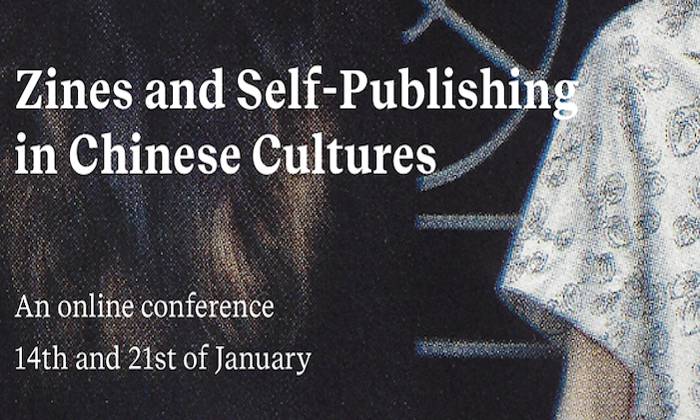Online conference: Zines and self-publishing in Chinese cultures
07 Jan 2022
Registration is open

Audience registration for our free, online conference, "Zines and self-publishing in Chinese cultures," is now open. This conference focuses on contemporary (as well as some historic) zines and self-publishing, including publications from Mainland China, Hong Kong and the Chinese diaspora around the world. The focus is mostly on mixed-media (print and digital) zines and self-publishing.
The online event is taking place on 14 and 21 January (GMT, but with presenters from around the world) and also includes two open, public zine making workshops by zine makers from Shenzhen/New York and Hong Kong/Vancouver.
We have a wide range of researchers, artists, zine makers and self-publishers from/interested in Chinese cultures taking part, as well as scholars of zines and self-publishing to help guide us.
Pomelo
The conference website also includes the publication/zine we made for this project, Pomelo. Pomelo is a five-volume publication exploring the 1930s Chinese women’s magazine, Linglong 玲瓏, and the themes featured in the letters section and editorial content of this magazine. We conduct this exploration through fashion (Janny Ye, www.seventy-five.co.uk), photography (Liz Hingley www.lizhingley.com), interview (Carwyn James Morris and Bonnie WANG) and play. We used the Linglong archives at Heidelberg and Columbia for this process. We hoped to explore women’s thoughts in general in Pomelo, and to do this we read through almost 10 years of archival magazines to find textual content we were interested in. We also found archival imagery of clothes to explore and we tried to understand the editorial decisions made around content and format. After finding multiple themes in the letters section and editorial content, we organised this information into five different folders, and we settled on a theme for Pomelo; marriage, relationships and companionship. We then translated sections we thought we could use in questions into English, created a list of questions for our participants, and sent them out to our participants.
The Pomelo team are happy to discuss Pomelo in classrooms, (public) lectures and seminars, and to send physical copies or digital files to departments and libraries. Pedagogy is a key goal for us.
On behalf of the Manchester China Institute, we hope you can join us at the conference.
